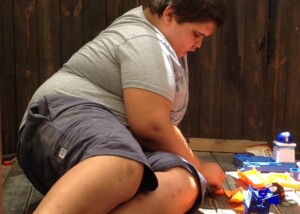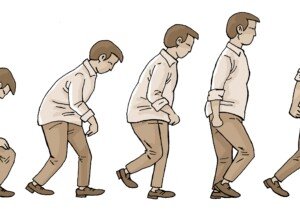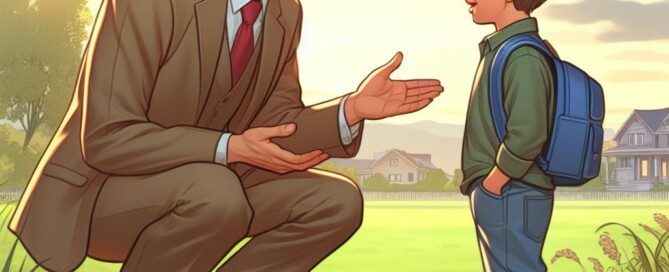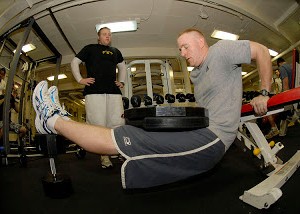Is Rice Cereal Overrated for Babies? Think Outside the Box

There is no scientific proof that rice cereal is better for a baby’s health than any other food out there. (more…)
How to Get a Young Child Fit Enough for Long Walks on Vacation

Are you concerned that your young child won’t have the stamina to keep up with all the walking you’ll be doing on your upcoming vacation? (more…)
Pedometers & Weight Loss: Are 10,000 Steps a Day Enough?
Are a pedometer and 10,000 steps every day all you need to lose weight?
Will you even be able to maintain the quota of 10,000 steps a day, day after day — and then for how many years or even months? (more…)
Can Antibiotics in a Toddler Cause Bloody Stools?

If you discover what appears to be blood mixed with your toddler’s poops, first ask yourself if your toddler has just started a course of antibiotics. (more…)
Should Obese Children Get Home Blood Pressure Checks?
Obesity can cause high blood pressure in children, so would it be practical to give an overweight child regular home blood pressure checks?
How to Teach Your Child to Refuse Helping a Stranger

Parents need to teach their children it’s OKAY to refuse helping a stranger because it’s very suspicious when a stranger seeks a young child’s help.
What Temperature Is a Fever for a Four Year Old?

At what point does a preschooler’s or baby’s temperature cross over to that of a fever?
This is something that every parent should know. A fever likely means that your child is fighting off an infection.
“A temperature of 99 is not a fever and not urgent,” says Irene Tien, MD, a board-certified emergency medicine and pediatric emergency medicine physician in MA.
“Infants can have temperatures of 99F normally,” continues Dr. Tien. “Fever in a child is not urgent in general.
“If your child is very young (i.e., under three months of age), there needs to be a phone call to the pediatrician if the temperature is 100.4F or higher.
“If the child is older than three months, we don’t really think of a fever as needing a special evaluation beyond a physical exam unless it is 102.2F or higher.
“Fever in kids is complicated, but the height of fever is not a marker for concern except is some cases of young infants.
The Real Threats
“We worry about temperatures being too high when children are left in enclosed spaces, like a car,” points out Dr. Tien. And this situation happens way too often!
“But the height of fevers from infection do not associate with the severity of the infection. Rather, some children are more prone to very high fevers than other children.”
If there are other symptoms such as a nagging cough, vomiting, bad stomach pain, respiratory distress or severe weakness, take your child to the emergency room.
 In practice for 20+ years, Dr. Tien is a leading medical voice on social media, providing the public with accurate information to empower them to live their healthiest life.
In practice for 20+ years, Dr. Tien is a leading medical voice on social media, providing the public with accurate information to empower them to live their healthiest life.
 Lorra Garrick has been covering medical, fitness and cybersecurity topics for many years, having written thousands of articles for print magazines and websites, including as a ghostwriter. She’s also a former ACE-certified personal trainer.
Lorra Garrick has been covering medical, fitness and cybersecurity topics for many years, having written thousands of articles for print magazines and websites, including as a ghostwriter. She’s also a former ACE-certified personal trainer.
Should a Baby’s Feet Be Covered in Public Buildings?

Have you noticed how common it is for parents to bring their babies into public buildings without their feet covered?
Ironically, if an adult is barefoot in a restaurant, he or she will be told by management to leave for this reason. (more…)
How to Sneak Hamstring Exercise into a Non-Ham Workout

Here’s a clever way to sneak some hamstring exercise into an upper body workout or even a leg workout. (more…)
Preschooler Has Foot Pain Only at Rest: See a Doctor

































































